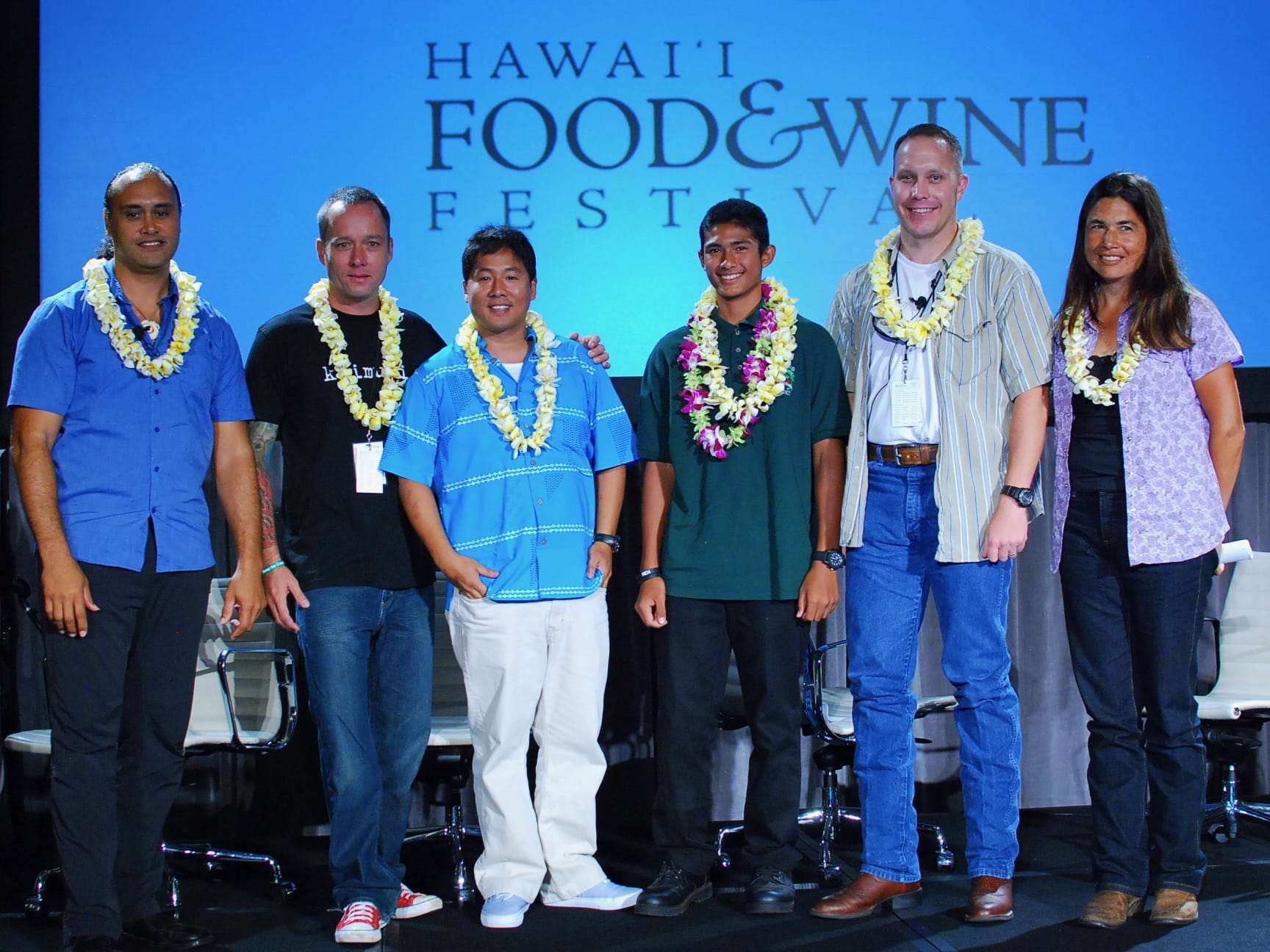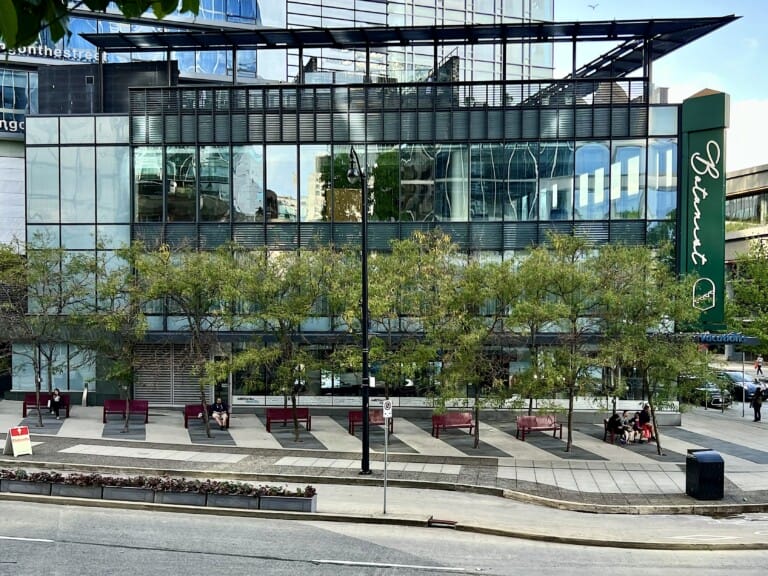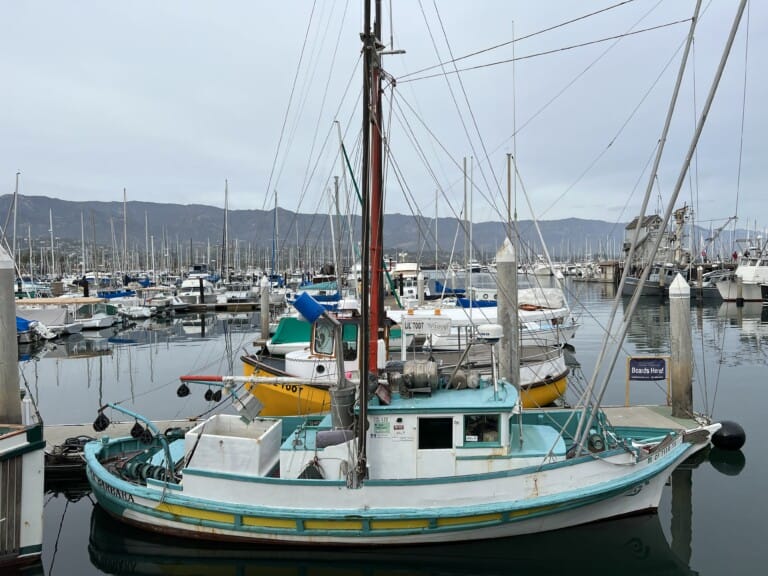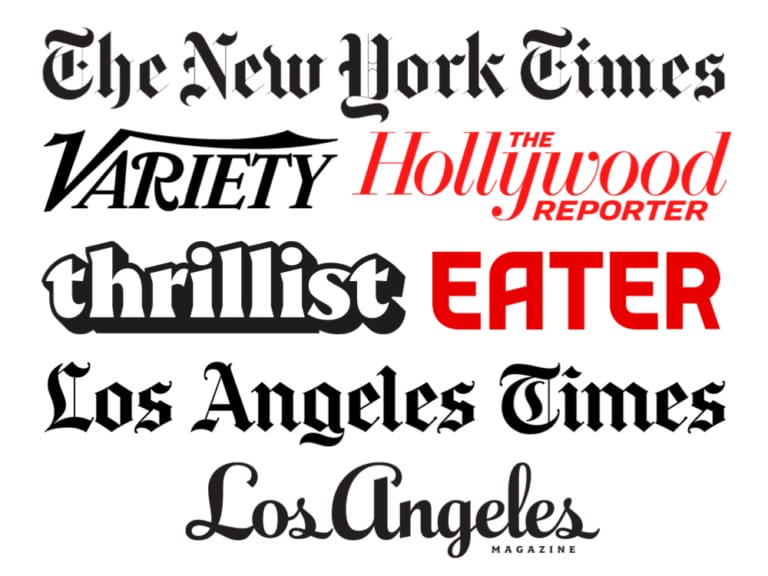A number of culinary events are content with having attendees stuff their faces with food and drink, and there’s nothing wrong with that, but Hawaii Food & Wine Festival does a good job of burrowing below the surface. We learned more about Hawaii’s connection to the aina during our day-long exploration for The Bounty of He’eia, and we continued our island education at The Modern Honolulu, beginning with a seminar involving some of Hawaii’s leading ambassadors, titled “Building a Sense of Plate and Place.”
After a performance of “Koi” by virtuoso slack key guitarist Makana, Hawaii Food & Wine Festival co-chair Roy Yamaguchi introduced the seminar’s moderator, Town chef-owner Ed Kenney, calling him “a leader and believer in the slow food movement.”
Kenney shared a personal story about his nine-year old son, who entered a version of his grandmother’s favorite dish in a contest at the Hailawea Taro Festival. His poi cake (seared with butter), lomi heirloom tomatoes and seared steak captured the prize because he tapped into a particular place and moment in time. Kenney described a sense of plate and place as “‘Ai Pono,” food that is right, morally correct.
He was part of a 14-chef James Beard think tank at Tennessee’s Blackberry Farm, a family run farm from the Beales, who founded the Ruby Tuesday restaurant chain and started raising animals, saving seeds and filling a larder. Kenney introduced Blackberry Farm chef Josh Feathers, who described everything a chef could want, including a “butcher shop, preservation kitchen, creamery, land, sheep, ducks.”
Feathers started his culinary career in 1993 as senior apprentice in United States Navy. He grew up in east Tennessee, “grew, caught, cooked and ate almost everything.” As he said, “If it flies it dies, if it’s brown it’s down.” In a powerful moment, he described facing a small lamb: “I’m going to let you go and become a vegetarian or kill you and do something with the life that you provided.” He chooses the latter, but maintains respect for the animals.
Keone Kealoha, from sustainable organization Malama Kauai, grew up in Kahuku on Oahu’s North Shore and spent years DJing. He had kids and asked, “What’s happening?” instead of “What’s happening tonight?” He raised community-based financing and gathered volunteers to clear 5.5 acres for a 42-plot garden. He realized, “It’s not about mass production, it’s about building relationships…between the people and the land.” He now works with 14 restaurants and six retail outlets and produced a Green Hawaii map, Green Map app and maintains a MKCookbook, another way to network and “share knowledge.”
He pointed out an important fact about sustainability, saying, “We could grow all our own food, but if we import all our inputs, it doesn’t matter,” referring to fertilizers. Sustainability extends to community food gatherings, where tea leave “plates” and coconut bowls reduce waste.
“The only thing hotter than a female chef is a female cattle rancher.” So said Kenney of former classmate Michelle Galimba of the Big Island’s Kuahiwi Ranch. She reinforced the challenge: “We have exponential growth and we have a finite planet.” She addressed the theme of the panel, saying, “For me, a sense of place is to love your aina,” that which provides or that which we eat from…It’s not just real estate, it’s something we love with our guts.”
Mark Noguchi, aka Gooch, used to work for Kenney at Town before earning his own acclaim at He’eia Pier General Store. He preached the notion of “food unaccompanied by a voice, a door always open.” The second generation Japanese-American danced hula, became a cook, works closely with He’eia in Ahupua’a Ko’olaupoko district on northeast Oahu. Noguchi said, “Cooking local food is who I am. It’s my plate.” He said he’s inspired by “the intangible connections with people” and wants young people to learn and be inspired, adding “I try to mentor young people by making them look backwards.”
Daniel Corpuz, a 9th grader at Kamaile Academy Public Charter School, was the youngest presenter. He’s from Waianae, an area known for crime and drug use, and participates in an aliki program that’s trying to transfer community heritage to young leaders.
Get Wild and Raw with Masaharu Morimoto and Ming Tsai On The Next Page









Leave a Comment